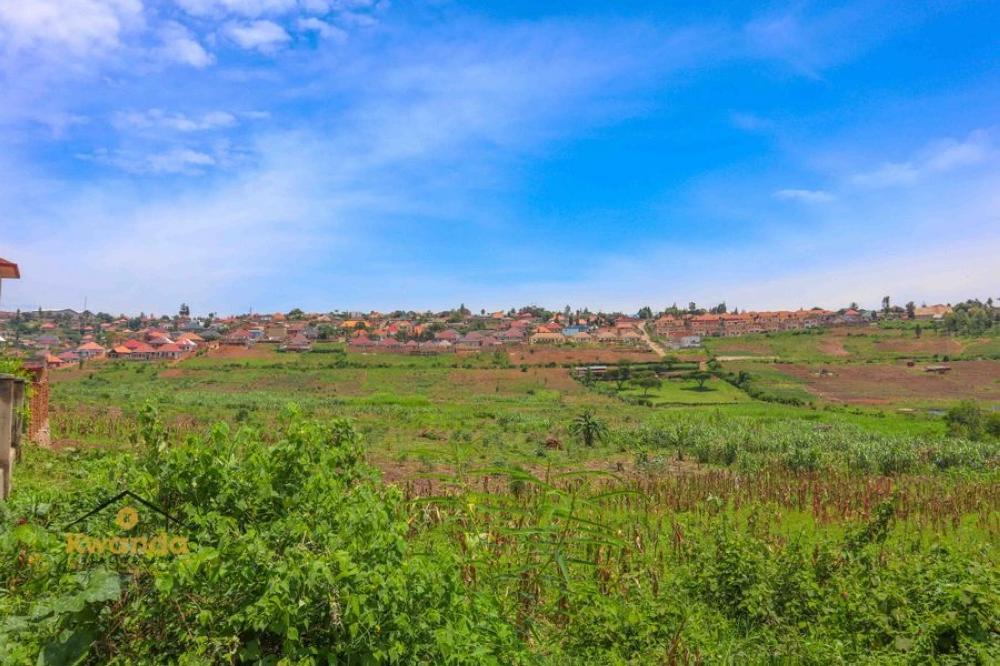Africa-Press – Rwanda. Members of the Parliamentary Committee on Land, Agriculture, Livestock, and Environment have raised concerns about the missed deadline for developing physical plans on 8,361 hectares in residential areas in the City of Kigali.
The demarcation of the new residential areas was supposed to be completed by 2024, as part of the implementation of the first phase of the City Master Plan.
According to the master plan, physical plans are well-planned and designed settlement sites with physical infrastructure including public services, drainage, transport, economic activities, recreation, and amenities to protect the environment. Once the physical plans are ready, property owners and developers to obtain construction permits.
Landowners in parts of the city have decried delays in the procurement of construction permits for residential houses due to the lack of physical plans for the residential areas where their land is located.
During a session of the Parliamentary Committee on Land, Agriculture, Livestock, and Environment on July 15, MP Speciose Ayinkamiye said that numerous gaps were found in the first phase of the city master plan execution, leading to delays and inconsistencies in the issuance of housing permits. The delays were documented in the Auditor General’s report 2023/24.
The Kigali Master Plan 2050 outlines a phased approach to implementation, with four distinct phases: Phase 1 (2019-2024), Phase 2 (2025-2031), Phase 3 (2032-2038), and Phase 4 (2039-2045). Each phase builds upon the previous one, with a clear focus on achieving the long-term vision of the Kigali Master Plan 2050.
The Auditor General’s report found that only 49 per cent of the 8,300 ha for Phase I had physical plans.
As a result, the review of the database of building permits issued between July 2021 and December 2024, along with shapefiles of areas with physical plans, showed that nearly 6,200 building permits were issued in areas with no detailed physical plans.
“The government may incur significant expenses to compensate citizens during expropriation for infrastructure development because citizens erected buildings without physical plans,” reads the Auditor’s report.
MP Egide Nkuranga warned that issuing permits in areas without physical plans might lead to land disputes and even demolitions.
“When a house is demolished yet the owner has a government-issued permit, it leads to frustration, even if compensation is given,” he said.
The Mayor of the City of Kigali, Samuel Dusengiyumva, attributed the failure to meet the deadline for physical plan development to the lack of a required infrastructure budget.
“You can’t roll out physical plans without roads, drainage, water, and street lighting. In 2019, our infrastructure budget was low,” he explained.
The mayor added that even where physical plans were completed, some sites were left idle as property owners had not started any development of buildings.
“Planning must align with actual land use. Otherwise, it leads to wasted resources,” Dusengiyumva said.
He also noted that speculation by some property dealers had driven up land prices in areas with idle plots, while policy changes had further slowed the permitting process.
“The delays in permit issuance were also due to new policy requirements, including the need for at least 95% of landowners in a site to sign off on a proposed physical plan,” he added.
As the city prepares to enter Phase 2 of its Master Plan implementation, Mayor Dusengiyumva promised a review of initial targets and renewed focus on ensuring that physical plans are both realistic and inclusive.
“We’re working to strengthen community awareness, provide training to land committees,” he assured.
Grace Nishimwe, Director General of the National Land Authority and Chief Registrar of Land Titles, said the government has now introduced frameworks to guide local communities in preparing physical plans.
“Residents now receive technical guidelines and work together in validating their proposals. Our role is to ensure technical accuracy,” she said.
However, she acknowledged that boundary errors and outdated land data had delayed several plans.
Physical plans conflicting with the City of Kigali master plan
Meanwhile, MPs noted that some established physical plans were conflicting with the City of Kigali master plan.
“Among the issues identified were 19 building permits that were issued despite conflicting with the master plan. Other permits were issued for areas not designated for residential use, and some applicants were either overcharged or undercharged,” MP Ayinkamiye stated.
The audit noted that 19 out of 30 physical plans approved and integrated into the City of Kigali master plan from July 2021 to December 2024 presented conflicts with the master plan. This affected at least 6,242 plots.
The observed issues include approved plots located in stormwater drainage, forest overlays, landslide-prone areas, high and medium voltage line buffers, steep slopes above 50%, and sewer pipes crossing the plots.
This was because the development of the Kigali City Master Plan and related physical plans was done before the formulation of sectoral master plans for energy and power, water, and wetlands sectors.
Irregularities in building permits
MPs also noted that even on developed physical plans, over 9,000 building permits were issued with inconsistent fees being charged. MP Olive Uwamurera raised concerns about this deficit, urging that the lost revenue be recovered.
“This is money that must be accounted for,” she stressed.
The MPs also raised concerns about complaints of bureaucratic delays during the construction permit application process.
“Many applicants are asked to provide excessive documentation; some were denied permits after months of going back and forth,” MP Ayinkamiye said.
Marie Solange Muhirwa, Chief of Urban Planning at Kigali City, addressed concerns about inconsistent permit fees.
She explained that previous charges ranged between Rwf20,000 and Rwf60,000, but are now standardised between Rwf100,000 and Rwf200,000, depending on plot size.
“Engineers used to be the ones uploading information into the system, often leading to errors, which we could not correct from our end. We’ve now created mechanisms to fix these errors,” she said.
For More News And Analysis About Rwanda Follow Africa-Press






